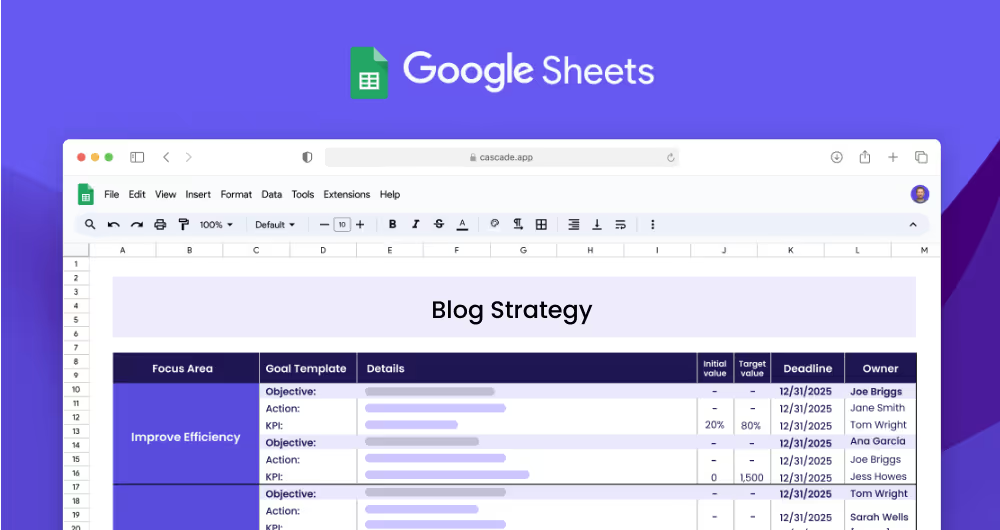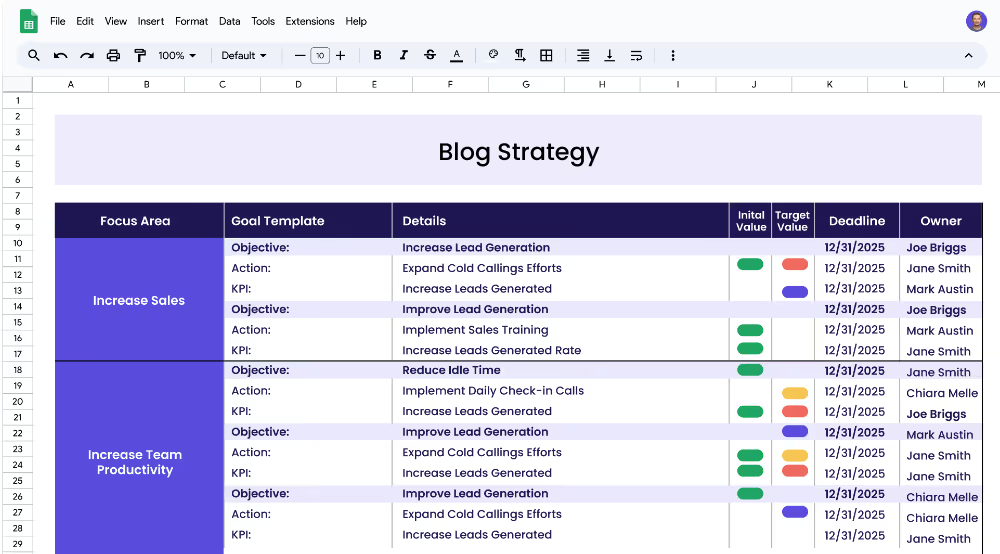A blog strategy is a set of goals and objectives defined to achieve a desired outcome. It typically includes activities and approaches that must be taken to achieve those goals and objectives, such as creating content, setting up automated tasks and processes, and monitoring and measuring results. A blog strategy is a great way to ensure that all content created is in line with a brand’s goals and that the content is effective in achieving those goals.
Each focus area has its own objectives, projects, and KPIs to ensure that the strategy is comprehensive and effective.
The Blog Strategy Template is designed to help content marketing teams in various industries create a blog strategy that aligns with their company’s objectives, enhances their reputation, and communicates effectively with their target audience. It provides a step-by-step guide to developing, implementing, and measuring the success of a blog strategy.
A focus area is a general area of focus for a blog strategy, such as increasing brand awareness, user engagement, or leads. Examples of strategic focus areas that could fall under a Blog Strategy could be: Increase Brand Awareness, Increase User Engagement, and Increase Leads.
Objectives are specific goals that fall under a focus area. Examples of some objectives for the focus area of Increase Brand Awareness could be: Increase Blog Visibility, and Increase Social Media Engagement.
Key Performance Indicators (KPIs) are specific, measurable targets that are set to track progress towards objectives. Examples of KPIs could include increasing blog post frequency from 2 posts/month to 3 posts/month, increasing social media sharing from 5/post to 10/post, or increasing blog subscribers from 400 to 500.
Projects, also known as actions, are activities that are implemented to achieve the desired KPIs. Examples of projects could include increasing blog post frequency, increasing social media sharing of blog posts, or increasing the number of blog subscribers.
If you’re ready to accelerate your strategy beyond simple spreadsheets and see faster, more tangible results, Cascade Strategy Execution Software is your essential tool. Unlike spreadsheets that become cumbersome and error-prone as strategies develop, Cascade offers a dynamic platform to streamline planning, execution, and tracking. This centralized system facilitates real-time updates and automated reporting, allowing teams to quickly adapt and maintain strategic alignment. Enhance your strategic capabilities with advanced features like visual dashboards that integrate planning and execution effectively. Sign-up for free or book a demo with one of our strategy experts to propel your strategy forward.


